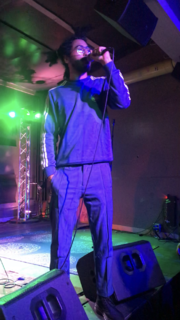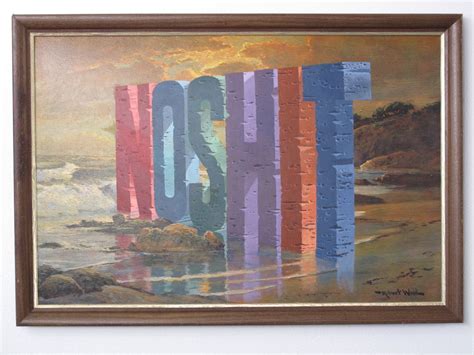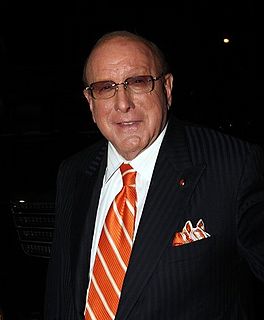A Quote by Georg Baselitz
The idea of changing or improving the world is alien to me and seems ludicrous. Society functions, and always has, without the artist. No artist has ever changed anything for better or worse.
Related Quotes
When I taught art, I was always asked, 'How do you know you're an artist? What makes you an artist?' And to me, it's like breathing. You don't question if you breathe; you have to breathe. So if you wake up in the morning, and you have to realize an idea, and there's another idea, and another, maybe you are really an artist.
I feel ever so strongly that an artist must be nourished by his passions and his despairs. These things alter an artist whether for the good or the better or the worse. It must alter him. The feelings of desperation and unhappiness are more useful to an artist than the feeling of contentment, because desperation and unhappiness stretch your whole sensibility.
The artist has some internal experience that produces a poem, a painting, a piece of music. Spectators submit themselves to the work, which generates an inner experience for them. But historically it's a very new, not to mention vulgar, idea that the spectator's experience should be identical to, or even have anything to do with, the artist's. That idea comes from an over-industrialized society which has learned to distrust magic.
The artist usually sets out -- or used to -- to point a moral and adorn a tale. The tale, however, points the other way, as a rule. Two blankly opposing morals, the artist's and the tale's. Never trust the artist. Trust the tale. The proper functions of a critic is to save the tale from the artist who created it.
Why was the painting made? What ideas of the artist can we sense? Can the personality and sensitivity of the artist be felt when studying the work? What is the artist telling us about his or her feelings about the subject? What response do I get from the message of the artist? Do I know the artist better because of the painting?
I would advise puppeteering for any artist. It's a way to break down pretensions. It's a sculpture that can talk. It's a painting that can talk. And it's pure play. I think every artist needs to stay in touch with the idea of playing. The artist should always be playing, always. All art is performance.
The idea of using media for expressing yourself artistically is kind of something I learned from my mother and my father. So for me, I think growing up wanting to be an artist, I always imagined myself sort of crossing over or mixing media and so it was a natural evolution for me to try to express in a filmic way or in a visual way. It just kind of seems like a natural sort of progression for me in terms of what I'm trying to do as an artist.







































